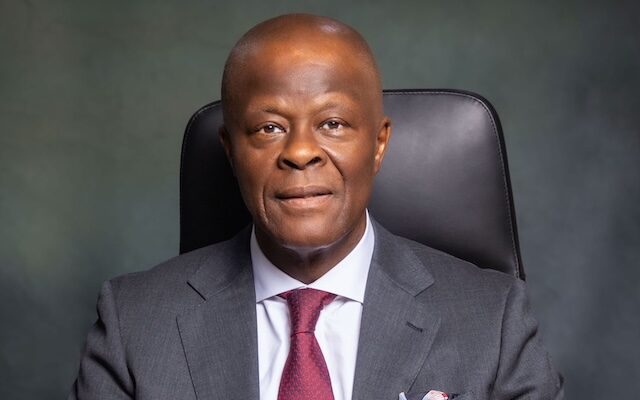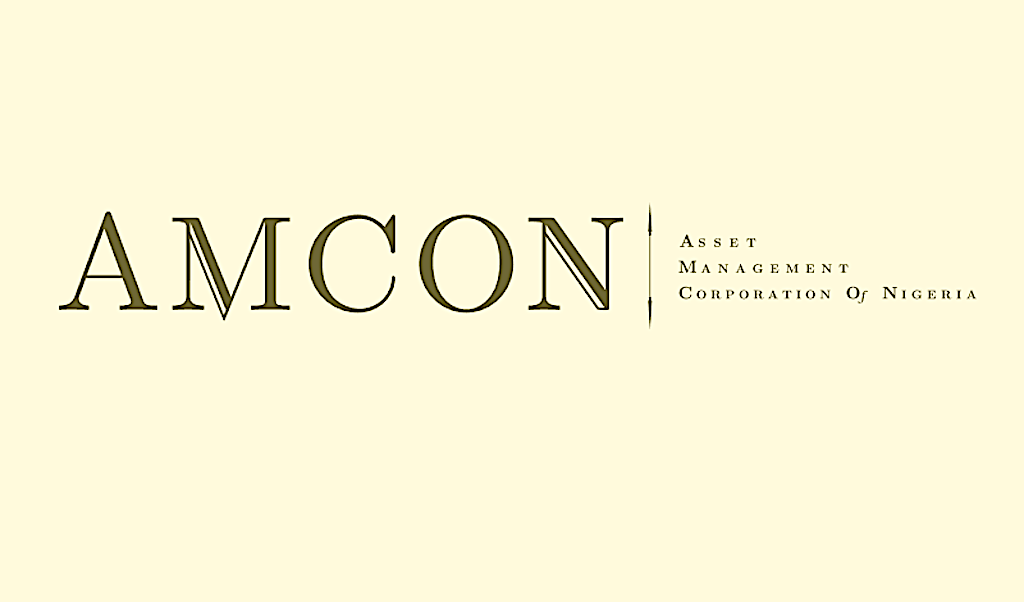Oladele’s Adherence to Due Diligence Repositions FCC for Service Delivery
Oladele’s Adherence to Due Diligence Repositions FCC for Service Delivery
By Olanrewaju Fatunmbi
In recent times, the Federal Character Commission (FCC) has introduced notable reforms aimed at restoring public confidence and effectively delivering on its constitutional mandate to ensure equitable distribution of posts and socio-economic amenities across Nigeria. This development is a breath of fresh air, especially with the ongoing debate about President Bola Ahmed Tinubu’s appointments being allegedly tilted towards the Southwest. The FCC’s efforts to promote fairness and equity are timely and crucial in addressing these concerns. Particularly note worthy is the timely release of data showing the distribution of political appointments across the six geopolitical zones. That’s a significant move! It is a transparent step towards addressing concerns about regional representation. Kudos to Hon Kayode Oladele, Acting Executive Chairman for taking this initiative. This has helped to quell speculations and provide a clear picture of the appointment landscape.
The analysis of the data released by the Commission shows that the northern region accounts for 401 positions, representing 56.3 per cent of the total, while the southern region holds 311 positions, or 43.7 per cent.
The breakdown of cabinet appointments reveals that North-west and South-west have the largest share, each with 11 ministers, representing 22.9 per cent of the cabinet. The North-central follows with eight ministers (16.6 per cent), while the North-east accounts for seven (14.5 per cent). The South-south has six ministers (12.5 per cent), and the South-east trails with five (10.4 per cent), bringing the total number of cabinet members to 48. Overall, the northern region accounts for 401 positions, representing 56.3 per cent of the total, while the southern region holds 311 positions, or 43.7 per cent.
The revelation serves as a testament to Oladele’s adherence to due diligence in his effort to reposition the Commission for effective service delivery. “Equity is the foundation of hope and citizens’ trust in government depends on visible fairness in appointments, contracts, and opportunities, Oladele declared.
The Commission’s latest proactive approach to service delivery is not an isolated case. Since assumption of duty as acting chairman in February 2025, Oladele’s tenure has been marked by a clear focus on rebuilding public trust, introducing reform, and promoting transparency. His major reform initiatives centred on stabilizing the agency after the controversies of the previous administration and aligning the FCC with the present administration’s agenda.
In his effort to change the old narrative, Oladele has demonstrated commitment to restoring the institutional credibility and public confidence. The most critical highlight of his time his consistent public statements, reassuring of his determination to end corruption and administrative rot that had plagued the agency, particularly allegations of job racketeering.
He openly acknowledged that the Commission had inherited low staff morale and diminished public trust due to credibility issues created by his predecessors, making the rebuilding of internal structures his primary task.
Due to his zero tolerance for misconduct, he issued stern warnings to Ministries, Departments, and Agencies (MDAs) against flouting recruitment rules, specifically stating that no MDA is permitted to issue letters of appointment without an FCC Certificate of Compliance.
For transparency and openness, he
used the FCC’s data to make public statements on the state of federal appointments, which was a significant step toward building public confidence.
Further to the ongoing reform initiatives, he announced plans to introduce an Integrated Federal Character Compliance Database (IFCCD) to enable real-time tracking of compliance levels across all MDAs, aiming to make the monitoring and enforcement process transparent and evidence-based.
Despite the temporary nature of his role, he initiated a number of internal reforms to improve the FCC’s operational efficiency, including reinstatement of the committee system, staff development and stakeholders engagement. Engagement with stakeholders involved collaboration with other institutions like the National Assembly, Office of the Head of Civil Service, Police Service Commission, NSIA, DSS, ICPC, NYSC, and the Federal Road Safety Corps, to harmonise recruitment processes and deepen transparency.
In his implementation of Committee System, he assigned oversight of specific MDAs to Commissioners for closer monitoring and participatory decision-making.
For staff development, he held workshops focused on strengthening leadership and management excellence to build internal capacity and promote professionalism within the agency.
Regarding staff welfare, the Commission under Oladele has implemented payment of arrears to retired directors and improved allowances for corps members and staff while embarking on the digital modernisation of its data systems.
To promote consensus building through stakeholder engagement, he actively sought synergy with key institutions like the National Assembly and anti-corruption agencies (ICPC, EFCC) to harmonize recruitment processes and push for greater enforcement powers for the FCC.
While it is worth noting that the reform initiatives are ongoing, Kayode Oladele’s tenure served as a transitional stabilizing force, shifting the FCC’s public focus from allegations of corruption to a commitment to reform and transparency in line with the government’s anti-corruption posture.
As a key Federal Executive body in Nigeria, FCC’s mandate is to function as a constitutional equalizer, ensuring that every segment of the country has a visible and equitable stake in the governance and resources of the nation. This principle, enshrined in the 1999 Constitution (Sections 14 and 153), is designed to ensure fairness and equity in the distribution of public opportunities and resources across the various ethnic, religious, and geographic groups that make up the Federal Republic of Nigeria, thereby promoting national unity and loyalty.
It’s core and most scrutinized mandate is ensuring that employment and political appointments reflect Nigeria’s diversity, preventing the predominance of people from a few states or sectional groups. The FCC achieves this by developing and setting a formula, subject to the President’s approval, for distributing all levels of posts across all Federal Ministries, Extra-Ministerial Departments, Parastatals, the Armed Forces, the Police, and other security agencies.
By promoting, monitoring, and actively enforcing compliance with the proportional sharing principles in all bureaucratic, economic, media, and political posts at all levels of government, Oladele is striving to attain the highest level of national unity and mutual trust among the constituent parts.
Overall, it is the responsibility of the Commission to develop schemes aimed at redressing the problems of imbalances and reducing the fear of relative deprivation and marginalization in both the public and private sectors.
Over the last couple of months Oladele has been in acting capacity, every of his step has been geared towards genuine the full implementation of this ideal. It resonates in every of his remark at public occasions. While recently warning the MDAs against recruitment rule violations, he insisted that all appointments in the public service must reflect fairness, equity, and inclusivity. “The 1999 Constitution and the FCC Act place on the Commission the duty to promote, monitor, and enforce compliance with the principles of fairness in appointments. In line with this, no MDA is permitted to issue letters of appointment without first obtaining the Commission’s Certificate of Compliance,” Oladele stated.
Oladele further added that public training institutions such as the Administrative Staff College of Nigeria (ASCON), Centre for Management Development (CMD), and Public Service Institute of Nigeria (PSIN) must be engaged to conduct aptitude tests, recruitment exercises rather than outsourcing recruitment process to private consulting firms.
Connecting the guidelines to the administration’s vision, Oladele emphasized that the FCC’s enforcement role directly supports President Bola Ahmed Tinubu’s Renewed Hope Agenda.
The Renewed Hope Agenda is clear about fairness, equity, and inclusivity in governance. By ensuring equal opportunities in the federal service, we are making every Nigerian feel a sense of belonging, which is critical to our national unity,” he said.
Additionally, he warned against abuses of the system, stressing that the Federal Character principle cannot be used to smuggle in unqualified candidates. “The best and most competent from each state must be considered. This is how fairness and merit can coexist under the Renewed Hope Agenda,” Oladele affirmed.
According to him, these measures are to ensure stability and justice.
When fairness guides our appointments, when no part of the country feels excluded, we are reducing grievances and strengthening cohesion. That is the true spirit of the Renewed Hope Agenda of President Bola Ahmed Tinubu,” he concluded.
While restating the Commission’s commitment to fairness, inclusivity, and excellence in public service delivery at a two-day workshop themed: “Strengthening Leadership and Management Excellence in the Federal Character Commission in Line with the Renewed Hope Agenda,” organised for the Commission’s directors, he harped in the need to sustain efforts to reposition itself as a strategic institution promoting Nigeria’s unity, equity, and inclusive governance.
“When President Bola Ahmed Tinubu unveiled the Renewed Hope Agenda, he laid out a bold vision of governance anchored on equity, justice, inclusivity, and performance-driven leadership.
“The very core of this agenda lies a moral and constitutional imperative — to ensure that every Nigerian, regardless of ethnic origin, religion, gender, or place of birth, is given a fair and equal opportunity to participate in governance and national development,” he said.
The workshop was in furtherance of his determined efforts to improve the management team’s capacity to promote fairness, transparency, and inclusivity in federal appointments and opportunities.
Oladele identified digital transformation, manpower planning, transparent recruitment processes, and the need for stronger inter-agency collaboration as some of the key challenges confronting the Commission.
The Secretary to the Commission, Muhammad Musa, described the workshop as “very important and crucial,” noting that it would enhance the performance of directors and senior officials in achieving the FCC’s mandate and the Renewed Hope Agenda.
Similarly, the Director of Public Affairs and Communication, Chizea Christopher Chukwudi, said the workshop was timely and aimed at strengthening staff performance while correcting public misconceptions about the Commission.
Looking ahead, the FCC plans to measure the real impact of its interventions through periodic Federal Character Impact Reports, which will assess compliance across sectors, highlight best practices, and identify gaps. According to Oladele, this will help expand public awareness about the Federal Character Principle and stimulate dialogue on fairness, merit, and inclusivity in governance.
Institutional reform as important as this can only lead to meaningful changes if the vision driving it is consistent and sustainable. It is fundamental to note that the institutional context within which policies are implemented is as important to their success or failure as the vision behind the policies.
As the driving force behind the new reform initiatives, preponderance of opinions is in support of Oladele’s aggressive drive to reposition the commission. Many have strongly argued that he should be allowed to complete his full tenure as substantive chairman, ensuring the sustainable promotion of fairness, equity, and national unity – core objectives of the Federal Character Commission (FCC) Act.
*Fatunmbi writes from Okeagbede, Imeko-Afon LGA of Ogun State.
By Olanrewaju Fatunmbi In recent times, the Federal Character Commission (FCC) has introduced notable reforms aimed at restoring public confidence and effectively delivering on its constitutional mandate to ensure equitable
Read more





